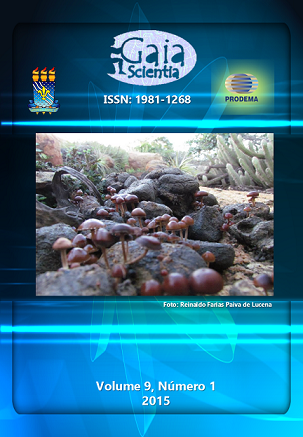Use of an explicit method for distinguishing exaptations from adaptations at the origin of terrestriality in Tetrapoda, based on cladograms and synapomorphies
Palavras-chave:
Adaptationism, Adaptive scenarios, Character effects, Evolutionary process, Macroevolution, SarcopterygiiResumo
We applied a cladogram-based method for discerning between adaptations and exaptations. We used current definitions and recognition criteria to distinguish between the evolutionary terms adaptation and exaptation. Our cladogram identifies 14 specific exaptations for the conquest of land by vertebrates and one possible adaptation, from a total of 16 features associated with the conquest of the land environment (the remaining feature is related to shallow water environment). Further, it was found that 25% of these features emerged before the Devonian period and may not be correlated to Devonian ecological events as suggested in previous works. The other exaptations emerged abruptly in the Devonian and therefore their correlation with adaptive processes directed towards the conquest of land during this period of the Paleozoic Era is not well grounded. As a whole, the ensemble of exaptations permits to falsify the correlation of terrestriality with adaptive scenarios. On the basis of characters that can be comprehensively scored in fossils and some that can also be studied in living forms we propose that macroevolutionary processes (exaptative and/or genetic drift processes), rather than adaptation may be the main evolutionary factors responsible for the conquest of land by vertebrates. The use of the cladogram-based method utilized herein allowed the development of a new perspective for the analysis of both paleontological and neontological data. Starting with cladograms available in current literature, it is possible to reach different interpretations for the same data in evolutionary terms. The resulting viewpoint is almost opposite to the traditional view of slow, gradual, adaptive (microevolutionary) character evolution, resulting in a macroevolutionary perception of chance events conspicuously involved in evolution. We propose that these results ultimately explain why the many different "evolutionary ecological scenarios" (or simply "adaptive scenarios") never explained the emergence of terrestrial tetrapods satisfactorily.Downloads
Não há dados estatísticos.
Downloads
Arquivos adicionais
Publicado
2015-12-31
Como Citar
TRIQUES, M. L.; CHRISTOFFERSEN, M. L. Use of an explicit method for distinguishing exaptations from adaptations at the origin of terrestriality in Tetrapoda, based on cladograms and synapomorphies. Gaia Scientia, [S. l.], v. 9, n. 1, 2015. Disponível em: https://periodicos.ufpb.br/ojs/index.php/gaia/article/view/23999. Acesso em: 21 abr. 2025.
Edição
Seção
Ciências Ambientais










